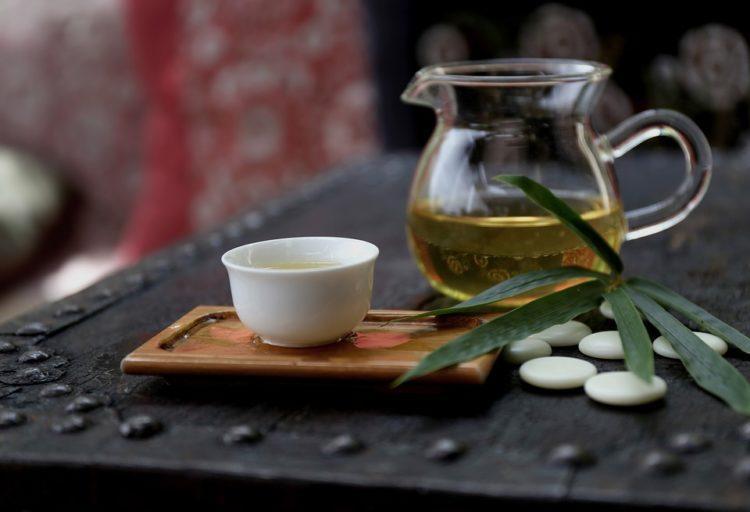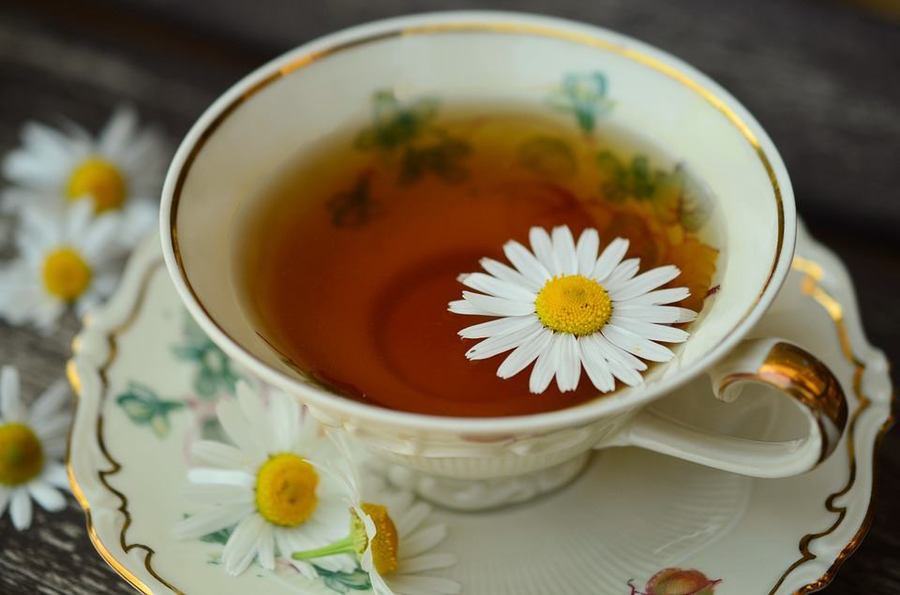Looking for the best tea for sleep?
Between 50-70 million Americans suffer from sleep disorders. Almost 9 million of us take sleeping pills. When did we all get so bad at sleeping?
But there is an easier path to a good night’s sleep that isn’t riddled with the risks of prescription medication: herbal teas for sleeping.

What are the best herbal teas to promote sleep?
The best teas for sleep aren’t your typical English Breakfast brews or other caffeine-laced concoctions to get you through the day. They’re strictly herbal, soothing and calming, and very relaxing.
Generally, there are very few and very rare side effects associated with herbal teas but do consult your doctor if you’re particularly sensitive or have any allergies.
Sleep Promoting Herbs & Plants
Valerian root is another plant ingredient often brewed into sleepytime tea, that’s popular for its mild sedative properties. It’s often a component of other medicines too thanks to its lack of side effects and calming properties.
Peppermint teas don’t have the same sedative effects as Valerian, for instance, (and are often drunk throughout the day) but they are a calming influence on the mind and can help quell any anxiety before sleep. Peppermint also improves your digestion and helps ease any stomach pains you might be experiencing.
Passionflower is another herb that’s super effective at inhibiting anxiety and insomnia, therefore promoting a good night’s sleep. When ingested, it encourages the production of an amino acid called GABA (or gamma aminobutyric acid) — this suppresses some areas of the brain that may be responsible for anxiety.
Lavender is a very popular herb for encouraging a sense of restfulness and calm that’s perfect for imbibing before sleep. Whether you’re drinking it in a tea, sniffing some essential oils or dotting it on your pillow, you know that you’re in for a relaxing night.
Magnolia Bark is a popular ingredient added to sleepytime teas in Asia that, again, is an effective suppressor of anxiety and nerves. Some studies have been undertaken on mice to prove its effectiveness.
The Best Herbal Teas For Sleeping
These are the most popular, tried and tested teas for a natural night’s sleep. Remember to check the Amazon listing for the full ingredients list. Loose leaf teas will require a tea diffuser which you can pick up cheaply online or in a homeware store.
- Soothing blend with a spicy-sweet taste profile
- Contains: valerian, chamomile, passionflower, spearmint, St John’s Wort, stevia, lavender, licorice, cardamom and cinnamon
- Naturally caffeine-free
- Tea bags (16 bags per box: 6 boxes per pack)
- Warm and cozy taste profile
- Contains: chamomile, valerian root, passionflower, lemon balm, orange peel, stevia and catnip herb
- Tea bags (18 bags)
- Light and slightly spicy taste profile
- Contains: passionflower, valerian root, chamomile, lemon balm, stevia, orange peel and catnip herb
- Tea Bags (18 bags)
- A relaxing tea with detox properties (not a laxative)
- Fruity and aromatic taste profile
- Contains: chamomile, cinnamon, burdock root, ginger, dandelion root, aniseed, fennel, licorice, juniper berries, hibiscus, passionflower, coriander, cardamom, black pepper, sage, parsley, cloves and kurkuma
- Loose leaf tea (50g)
- Soothing and floral taste profile
- Contains: chamomile, ginger, saffron, licorice, fennel, rosebuds, spearmint, rosehips, lemongrass, tulsi and natural orange flavor
- Tea bags (30 bags)
- Light and refreshing taste profile
- Contains: chamomile, spearmint, lemongrass, tilia flowers, blackberry leaves, orange blossoms, hawthorn and rosebuds
- Naturally caffeine free
- Tea bags (40 bags in a box: 6 boxes in a pack)
- Premium, organic rooibos tea
- Contains: rooibos leaves, spearmint, orange peel, chamomile, stevia, passionflower and valerian root
- Naturally caffeine free
- Tea bags (36 bags)
We hope you’ve found our Best Teas for Sleep post helpful. Looking for alternatives? Be sure to visit our sleep tech reviews section for other great options.













